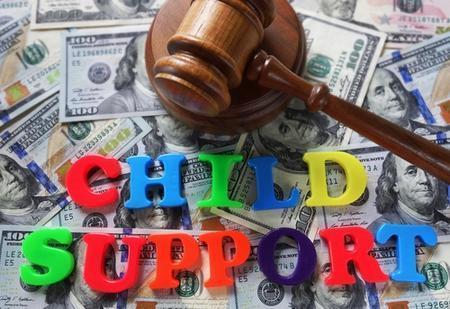630-462-9500
After Hour New Client Telephone Number 630-690-6077
1776 S. Naperville Road, Building B, Suite 202,
Wheaton, IL 60189
Recent Blog Posts
Do My Spouse and I Have to Be Living Separately to Get a Divorce in Illinois?
 If you and your spouse are considering divorce, you may have questions about how your living situation will influence the divorce timeline. COVID-19 has affected nearly every aspect of our lives. In fact, for many spouses contemplating divorce, moving to a new home is simply not a possibility right now. You may have wondered, “Can I get divorced if my spouse and I are still living together?” Illinois divorce requirements have changed significantly over the past several years, so it is important to understand these requirements if you plan on ending your marriage.
If you and your spouse are considering divorce, you may have questions about how your living situation will influence the divorce timeline. COVID-19 has affected nearly every aspect of our lives. In fact, for many spouses contemplating divorce, moving to a new home is simply not a possibility right now. You may have wondered, “Can I get divorced if my spouse and I are still living together?” Illinois divorce requirements have changed significantly over the past several years, so it is important to understand these requirements if you plan on ending your marriage.
Mandatory Separation Period for Illinois Divorces
Considerable changes were made to the Illinois Marriage and Dissolution of Marriage Act in 2016. Included in these changes was an overhaul of the “grounds” or reasons for divorce. Prior to the 2016 update, couples could assert “fault-based” grounds such as adultery or mental cruelty or the no-fault grounds of “irreconcilable differences.” To use irreconcilable differences as the reason for the divorce, the couple was required to live separately for up to two years, but not less than six months. If the couple alleged fault-based grounds, the mandatory separation period was six months.
What Is Parental Alienation, and How Can it Influence Child Custody?
 Ideally, unmarried and divorcing parents would place their children's well-being above their own angry or vengeful feelings toward their ex. Unfortunately, the pain of a divorce or breakup can sometimes make parents lose sight of what is really important. Some parents even attempt to influence or coach their children to dislike the other parent. Whether this influence is intentional or unintentional, the results can be extremely harmful to both the children and the other parent. “Parental alienation” occurs when a parent manipulates a child in such a way that the child begins to feel fearful or hostile toward the other parent. It is possible that parental alienation can have a substantial effect on child custody.
Ideally, unmarried and divorcing parents would place their children's well-being above their own angry or vengeful feelings toward their ex. Unfortunately, the pain of a divorce or breakup can sometimes make parents lose sight of what is really important. Some parents even attempt to influence or coach their children to dislike the other parent. Whether this influence is intentional or unintentional, the results can be extremely harmful to both the children and the other parent. “Parental alienation” occurs when a parent manipulates a child in such a way that the child begins to feel fearful or hostile toward the other parent. It is possible that parental alienation can have a substantial effect on child custody.
What Actions May Be Considered Parental Alienation?
Romantic partners or spouses who have ended their relationship will often harbor some degree of bitterness or spite. However, it is important for parents to avoid letting their feelings toward their ex influence the relationship between their ex and their shared children. If a parent disparages the other parent to the point that it begins to break down the relationship between the child and the other parent, this may be considered parental alienation. Parental alienation may involve:
What Types of Spousal Support Are Available in an Illinois Divorce?
 Illinois courts award spousal maintenance (also known as alimony or spousal support) when a divorcing spouse requires monetary assistance based on his or her financial and employment circumstances. There are many different factors that determine whether a spouse receives support and the amount of support he or she is entitled to. If a couple has signed a valid marital agreement dictating the terms of spousal maintenance, Illinois courts will typically uphold the terms contained in the agreement. Otherwise, if a spouse wishes to receive spousal maintenance, he or she must petition the court and explain his or her need for support.
Illinois courts award spousal maintenance (also known as alimony or spousal support) when a divorcing spouse requires monetary assistance based on his or her financial and employment circumstances. There are many different factors that determine whether a spouse receives support and the amount of support he or she is entitled to. If a couple has signed a valid marital agreement dictating the terms of spousal maintenance, Illinois courts will typically uphold the terms contained in the agreement. Otherwise, if a spouse wishes to receive spousal maintenance, he or she must petition the court and explain his or her need for support.
Alimony May Be Temporary, Fixed, Reviewable, or Indefinite
The type, amount, and duration of spousal maintenance is based on the needs of the spouse seeking support, the financial resources of both spouses, and the amount of time the couple was married. There are four main categories of spousal maintenance in Illinois:
Does My Spouse Have the Right to Keep a Family Car After Our Divorce?
 If you are like many people, your car, truck, or other vehicle is an essential component of your everyday life. You may have also spent a great deal of time, effort, and money making payments on your vehicle and keeping it maintained. It is therefore understandable to have concerns about who will retain ownership of your vehicle after divorce. You may question whether your spouse has the right to keep a car that is only titled in your name or worry that you will be forced to sell the vehicle and split the proceeds. Understanding the laws that govern asset distribution during divorce is key to reaching a fair divorce settlement.
If you are like many people, your car, truck, or other vehicle is an essential component of your everyday life. You may have also spent a great deal of time, effort, and money making payments on your vehicle and keeping it maintained. It is therefore understandable to have concerns about who will retain ownership of your vehicle after divorce. You may question whether your spouse has the right to keep a car that is only titled in your name or worry that you will be forced to sell the vehicle and split the proceeds. Understanding the laws that govern asset distribution during divorce is key to reaching a fair divorce settlement.
Illinois Laws Regarding Ownership of Vehicles and Divorce
You and your spouse may be able to resolve property division concerns such as vehicle ownership through negotiations, mediation, or collaborative law. However, not every divorcing couple is able to reach a property distribution arrangement without court intervention. If your divorce case is litigated, a legal doctrine called “equitable distribution” will be used to determine which spouse gets what assets. Separate property, meaning property acquired by a party before getting married, is typically assigned to the original owner of the property. Property received in an inheritance is also usually classified as separate property. Assets that are acquired by either spouse during the marriage are considered marital property. If you purchased your vehicle after you got married, it is part of the marital estate and subject to division. This means that even if your vehicle is titled in your name alone, your spouse will have the same rights to the vehicle as you do.
What Are the Most Common Issues That Can Derail an Illinois Adoption?
 Choosing to adopt a child can be a wonderful, life-changing decision. However, the adoption process can be full of legal complications and potential pitfalls. If you are considering adoption, it is important to educate yourself about the obstacles that you may encounter. It is also important to work with an adoption attorney who has experience successfully addressing these issues.
Choosing to adopt a child can be a wonderful, life-changing decision. However, the adoption process can be full of legal complications and potential pitfalls. If you are considering adoption, it is important to educate yourself about the obstacles that you may encounter. It is also important to work with an adoption attorney who has experience successfully addressing these issues.
Relative Adoptions
One of the most common types of adoption in Illinois is relative adoption. Adopting a stepchild or other relative is often more straightforward than other types of adoption, but it can also involve many legal challenges. A child can only have two parents, so in some cases, the child's biological parent or parents may need to relinquish their parental rights before the adoption can occur. However, many parents are unwilling to do so, or they may choose to contest the adoption in court. If parents do not voluntarily relinquish their parental rights, they may lose their parental rights after being deemed “unfit” by the court. Neglect, abuse, abandonment, severe drug addiction, and other issues that may lead a court to terminate a parent's parental rights.
Who Gets to Keep the Family Pet in an Illinois Divorce?
 Whether you have a dog, cat, horse, bird, or other type of animal, you probably love and cherish your pet as if he or she was part of the family. One concern many divorcing spouses have is who will keep the family pet after their marriage ends. Arguments about “pet custody” can often become heated. One spouse may even try to maintain ownership of the pet simply to spite the other spouse. If you are planning to end your marriage, make sure to educate yourself about how Illinois' property division laws address pet ownership after divorce.
Whether you have a dog, cat, horse, bird, or other type of animal, you probably love and cherish your pet as if he or she was part of the family. One concern many divorcing spouses have is who will keep the family pet after their marriage ends. Arguments about “pet custody” can often become heated. One spouse may even try to maintain ownership of the pet simply to spite the other spouse. If you are planning to end your marriage, make sure to educate yourself about how Illinois' property division laws address pet ownership after divorce.
Pet Custody Laws in Illinois
Although you most likely do not think of your pet as simply another piece of property, pets are treated similarly to other assets during divorce. There are not proceedings for “pet custody” the way there are for child custody. The pet is considered a marital asset if it was acquired by either spouse during the course of the marriage. If the pet was acquired by a spouse before the marriage, that spouse will typically remain the owner after divorce. However, there are some exceptions to this.
Do Divorced Parents Have to Pay for Children's College Expenses in Illinois?
 The average cost of a 4-year public college education is just over $45,000. If the student attends a private or out-of-state school, that number can rise to $100,000-$150,000, or even more. Understandably, paying for children's college tuition and fees is a major concern for many parents. The question of how to finance a child's college education becomes even more pressing if the parents are unmarried or divorced. If you plan to end your marriage or were never married to your child's other parent, it is essential that you understand your rights and obligations regarding non-minor support for college expenses.
The average cost of a 4-year public college education is just over $45,000. If the student attends a private or out-of-state school, that number can rise to $100,000-$150,000, or even more. Understandably, paying for children's college tuition and fees is a major concern for many parents. The question of how to finance a child's college education becomes even more pressing if the parents are unmarried or divorced. If you plan to end your marriage or were never married to your child's other parent, it is essential that you understand your rights and obligations regarding non-minor support for college expenses.
How Much Money Are Parents Required to Contribute to Their Child's College Education?
Illinois courts have the authority to require parents who are unmarried or divorced to contribute toward their children's college expenses. These expenses may include tuition, housing, textbooks and fees, living expenses, medical insurance, and medical expenses. Courts may order parents' financial contributions to be paid to the child, the university or college, or to either parent.
How Can I File an Appeal After My Illinois Divorce?
 Most divorcing spouses hope to avoid going to trial. They may attempt to reach an agreement about unresolved divorce issues through their attorneys, with help from a third-party mediator, or through the collaborative law process. Unfortunately, not every couple is able to reach a settlement outside of court. During divorce litigation, a judge hears arguments and evidence from both sides and then issues a judgment. If your divorce judgment did not turn out the way you had hoped, you may wonder what your options are for appealing the court's decision.
Most divorcing spouses hope to avoid going to trial. They may attempt to reach an agreement about unresolved divorce issues through their attorneys, with help from a third-party mediator, or through the collaborative law process. Unfortunately, not every couple is able to reach a settlement outside of court. During divorce litigation, a judge hears arguments and evidence from both sides and then issues a judgment. If your divorce judgment did not turn out the way you had hoped, you may wonder what your options are for appealing the court's decision.
When Should I Seek an Appeal?
Many people assume that they can file an appeal if they disagree with the terms of their divorce judgment. However, successfully appealing a divorce judgment is a complex legal pursuit that is only possible under certain conditions. A person cannot appeal a divorce simply because he or she is unhappy with the outcome of the case. Circuit court decisions, including divorce judgments, may only be appealed if there is a possibility that the decision resulted from errors of law. Examples of situations in which an appeal may be justified include:
My Ex Is Not Paying Child Support. Can I Withhold Parenting Time?
 The average cost of raising a child from birth until age 18 is almost $300,000. If you are a single parent, you know just how quickly child-related expenses can add up. Child support is a vital source of financial assistance that many single parents come to depend on. When an obligor parent is not paying his or her court-ordered child support, the recipient parent may wonder what he or she can do to make the other parent pay. In some cases, the parent who is owed child support may decide to withhold visitation, technically called parenting time, from the other parent until he or she becomes current on his or her child support payments. However, withholding visitation can have significant civil and criminal consequences.
The average cost of raising a child from birth until age 18 is almost $300,000. If you are a single parent, you know just how quickly child-related expenses can add up. Child support is a vital source of financial assistance that many single parents come to depend on. When an obligor parent is not paying his or her court-ordered child support, the recipient parent may wonder what he or she can do to make the other parent pay. In some cases, the parent who is owed child support may decide to withhold visitation, technically called parenting time, from the other parent until he or she becomes current on his or her child support payments. However, withholding visitation can have significant civil and criminal consequences.
Parenting Time and Child Support Are Two Separate Issues Under Illinois Law
Illinois law considers child support and parenting time to be two distinct concerns. A court will not limit a parent's access to his or her children because he or she falls behind on child support. The only time that a parent should be denied parenting time is if there is proof that allowing court-ordered parenting time would present a danger to the well-being of the child. If your child's other parent is not paying child support, this does not negate his or her legal right to parenting time. In fact, by withholding your child from the non-paying parent, you may be violating your parenting plan, and you could face serious consequences as a result. You may face fines, the suspension of your driver's license, probation, mandated parenting classes, and even jail time. Even more importantly, refusing to let your child see the other parent may punish your child more than it punishes the non-paying parent.
Am I Responsible for My Spouse's Debt if We Get Divorced?
 Whether it is from medical bills, student loans, credit cards, or another source, most adults have debt. In fact, the average American is about $38,000 in debt. If your spouse has a high amount of debt, you may have questions about who is responsible for paying this debt after you get divorced. You may assume that any credit cards or loans that are in your spouse's name will be his or her sole responsibility after you end the marriage. Unfortunately, this is not always the case. There are several different factors that influence how debt is divided in an Illinois divorce.
Whether it is from medical bills, student loans, credit cards, or another source, most adults have debt. In fact, the average American is about $38,000 in debt. If your spouse has a high amount of debt, you may have questions about who is responsible for paying this debt after you get divorced. You may assume that any credit cards or loans that are in your spouse's name will be his or her sole responsibility after you end the marriage. Unfortunately, this is not always the case. There are several different factors that influence how debt is divided in an Illinois divorce.
Debt is Divided Similarly to Property
Illinois is an equitable distribution state. Any property that was obtained during the marriage is considered part of the marital estate and is subject to division during divorce. Property that a spouse obtained before getting married is considered separate property and is not subject to division. Debt is handled in a similar way. Any debts that were acquired by either spouse during the marriage are generally considered to be marital debts shared by both spouses. Debts acquired before the spouses got married are typically considered separate and are assigned to the spouse who acquired the debt.




















